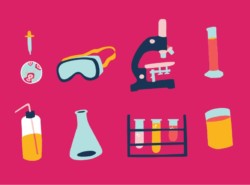
Development of a tailored supportive care program for women living with advanced breast cancer
Published: 10/9/19 1:48 AM
Meinir Krishnasamy
Women living with advanced breast cancer (also referred to as metastatic cancer, when the tumour has spread) have many points of contact with the health system during their heavy treatment schedule.
Although the general level of cancer care continues to improve, advanced breast cancer patients have indicated that a more tailored system is needed, because they feel their individual physical and emotional needs are not being met, which impacts their quality of life and health outcomes.
For example, having a single contact at their treating centre or hospital, fears about the cancer spreading and having enough information to know how to help themselves are among some of the needs and concerns for women living with advanced stages of breast cancer feel are lacking in current treatment programs.
However, despite growing awareness of these unmet needs, there doesn’t appear to be a move toward developing a tailored supportive care program that these women can access to address their many and changing needs and concerns.
This study sets out to develop and trial a supportive care program that is based on patient input.
It will bring together advanced breast cancer patients, breast cancer oncologists, cancer nurses, allied health professionals, palliative care physicians, breast cancer advocacy and support organisations, cancer researchers and IT expertise to develop a support program that can be accessed either as a face-to-face resource, online or via a smartphone app.
In addition to consumer informed content, the modules will draw together evidence-based resources to inform symptom self-management; healthy lifestyle behaviours; strategies to minimise worry and anxiety; how to recognise and where to get help for depression; practical issues (financial support, superannuation and wills); and issues of relevance for women living with advanced breast cancer, including bone health, menopausal symptoms, diet and exercise.
The program will draw together in one place, for the first time, resources developed specifically for women with advanced breast cancer by key groups such as BCNA, BreaCan and Cancer Council Victoria.
